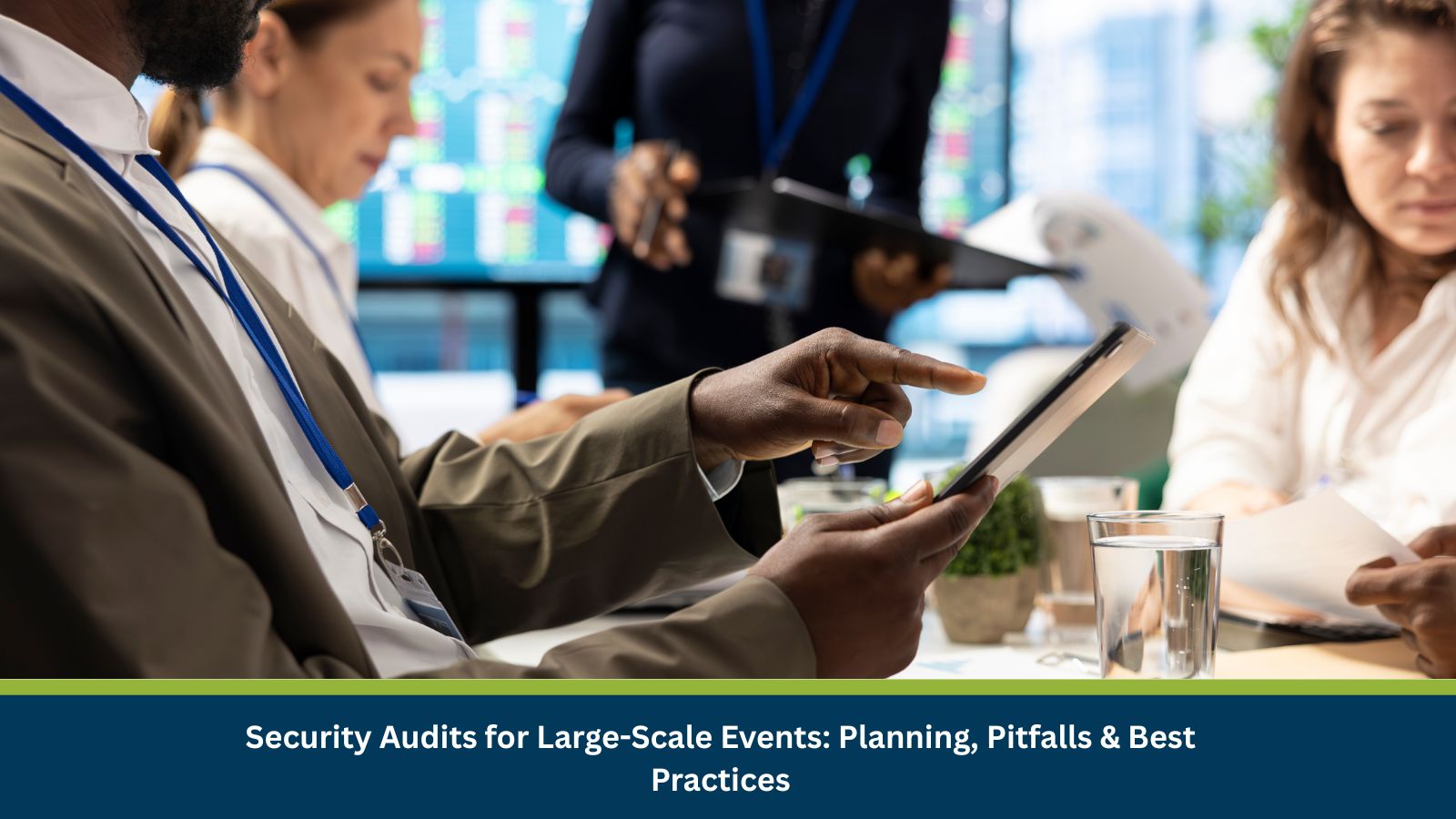Organizing a large-scale event is a monumental task. Whether it’s a sports championship, a music festival, or a political gathering, ensuring the safety of thousands or even millions, of attendees is non-negotiable. This is where security audits for large-scale events play a critical role. These audits help organizers identify risks, close security gaps, and create a proactive plan to protect both people and property.
Why Security Audits Are Essential
A security audit isn’t just a checklist; it’s a deep dive into how prepared an event is for potential threats. With high-profile events becoming prime targets for everything from cyberattacks to physical security breaches, audits allow stakeholders to:
- Identify vulnerabilities in physical and digital infrastructure.
- Ensure compliance with local regulations and licensing requirements.
- Optimize resources by addressing gaps in staffing, surveillance, and emergency response.
- Boost confidence among attendees, sponsors, and government authorities.
Without a comprehensive audit, even the most well-organized events risk chaos, reputational damage, or worse, serious security incidents.
Key Planning Elements of a Security Audit
Effective security audits for large-scale events start well before the event begins. Planners must consider the following:
Risk Assessment
Every event has unique risk factors. Outdoor music festivals may deal with weather-related emergencies, while sporting events face the risk of crowd surges. Audits must account for both general and event-specific threats.
Access Control Systems
How people enter, move, and exit a venue can determine safety. Security audits evaluate ticketing systems, screening processes, and credential verification to ensure only authorized individuals gain entry.
Emergency Response Planning
From medical emergencies to fire hazards, auditors examine protocols for swift response. This includes coordination with local police, fire departments, and medical teams.
Technology Integration
Modern events rely heavily on surveillance cameras, drone monitoring, and cybersecurity measures. Audits check that these systems are functional, up to date, and well-integrated into the broader security framework.
Staff Training & Drills
Human error is one of the biggest security vulnerabilities. Security audits should ensure that all personnel are properly trained and that emergency drills are conducted ahead of time.
Common Pitfalls in Security Audits
Even seasoned event organizers can make mistakes. Some common pitfalls include:
- Last-minute audits that leave no room to fix identified vulnerabilities.
- Ignoring cybersecurity, especially for events with digital ticketing or online registration.
- Overlooking communication protocols, resulting in confusion during emergencies.
- Inadequate coordination with local authorities, leaving gaps in law enforcement and first responder coverage.
By anticipating these pitfalls, organizers can significantly improve event resilience.
Best Practices for Effective Security Audits
For maximum effectiveness, security audits for large-scale events should be:
- Started early – Audits should begin months in advance to allow time for adjustments.
- Holistic – Cover both physical and digital aspects of security.
- Collaborative – Engage multiple stakeholders including venue management, local law enforcement, cybersecurity experts, and emergency responders.
- Scenario-based – Use simulations and “what-if” scenarios to test the response to potential crises.
- Reviewed continuously – Security isn’t static. Regular check-ins during the event help adapt to evolving risks.
FAQs About Security Audits for Large-Scale Events
1. What is a security audit for large-scale events?
A security audit is a systematic review of physical, cyber, and operational measures to identify risks, close gaps, and ensure safety compliance for large gatherings.
2. Why are security audits necessary for big events?
They help organizers prevent incidents, comply with laws, and protect both attendees and assets. Without them, risks like crowd surges or cyber breaches increase significantly.
3. How early should security audits begin?
Ideally, audits should start months before the event, with continuous checks closer to the date to adjust for new risks or changes.
4. What are the most common mistakes in event security audits?
Common pitfalls include last-minute planning, ignoring cybersecurity, poor communication protocols, and lack of inter-agency coordination.
5. Who should conduct a security audit?
Security professionals, often in collaboration with venue managers, law enforcement, emergency responders, and cybersecurity specialists.
6. How do security audits improve attendee confidence?
By ensuring visible safety measures, smooth entry/exit, and quick emergency responses, audits reassure attendees that risks are managed.
Final Thoughts
Large-scale events bring people together, creating unforgettable experiences. But without rigorous planning and preparation, these events can quickly turn into security nightmares. Conducting security audits for large-scale events isn’t just a regulatory requirement, it’s a strategic necessity. By avoiding common pitfalls and following best practices, event organizers can safeguard attendees while ensuring peace of mind for everyone involved.
Your Security Partner
MitKat’s Datasurfr platform delivers real-time, AI-powered risk intelligence, filtered and contextualised by expert analysts to support proactive decision-making. Paired with our Protective Services, we turn intelligence into action—safeguarding your leadership wherever they operate. Collaborate with MitKat to build true business resilience. From Risk Consulting and Security Design to Cyber Security and Protective Services, our integrated solutions help organisations navigate today’s complex threat landscape and build robust, future-ready risk management frameworks.






